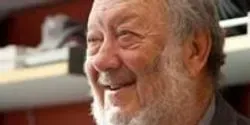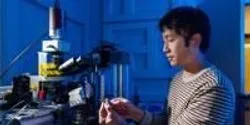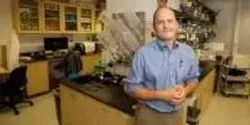All by Stanford University
Filter by
AllArticlesAudioEbooksEventsInfographicsNewsProductsSurveysDocumentsVideosVirtual EventsWebinars
Stanford University announced Jan. 29 that it has received a grant from the Bill & Melinda Gates Foundation to accelerate efforts in vaccine development. The $50 million grant over 10 years will build on existing technology developed at Stanford and housed in the Human Immune Monitoring Core, and will establish the Stanford Human Systems Immunology Center. The center aims to better understand how the immune system can be harnessed to develop vaccines for the world's most deadly infectious diseases.

Following a thorough damage assessment, the SLAC National Accelerator Laboratory had restored power to the linear accelerator. All safety systems and fire suppression systems have been restored. SLAC will start up accelerator operation and resume operations at both LCLS and FACET, according to the lab's website. The fire had shut down the lab as of late Thursday, June 28, but there were no injuries and no danger to the community, the university said in a statement.

The detection of gravitational waves by the BICEP2 experiment at the South Pole supports the cosmic inflation theory of how the universe came to be. The discovery, made in part by Stanford University Assistant Professor Chao-Lin Kuo, supports the theoretical work of Stanford's Andrei Linde.

Stanford University's Center for Compassion and Altruism Research and Education co-sponsored the Dalai Lama's visit to Silicon Valley for a talk on business, ethics and compassion. It highlighted recent achievements at Stanford's center, which continues to make research progress in the "science of compassion" while calling attention to the importance of well-being in our society.

The Stanford University School of Medicine has received $90 million from Ludwig Cancer Research on behalf of its founder, Daniel K. Ludwig, to support the school's innovative work in cancer stem cells, which are believed to drive the growth of many cancers.

Stanford University researchers have received Bio-X funding to develop a tiny moving probe to study the mechanical properties of sensory cells in the ear. Their research could lead to new treatments for hearing loss, and the probe may advance other scientists’ research as well.

A brain region activated when people are asked to perform mathematical calculations in an experimental setting is similarly activated when they use numbers — or even imprecise quantitative terms, such as “more than”— in everyday conversation, according to a study by Stanford University School of Medicine scientists.

The latest research suggests that a more compassionate workplace, where helpfulness and forgiveness are part of the business model, is a more productive, efficient and happy place to work














